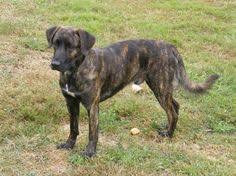
Corsican Dog
Conditions of detention
Corsican Dogs are adaptable but thrive best in environments where they have space to roam and exercise. They are well-suited for rural or suburban living with access to a yard.
Useful Fact: These dogs enjoy outdoor activities and can live comfortably in homes with large gardens or on farms.
Nutrition and diet
A balanced diet rich in proteins and fats is essential for maintaining the Corsican Dog’s energy levels and overall health. High-quality commercial dog food or a well-planned homemade diet can meet their nutritional needs.
Useful Fact: Feeding them two meals a day can help manage their energy levels and prevent overeating.
Health
The Corsican Dog is generally healthy, with a lifespan of around 12-15 years. Common health issues include hip dysplasia and ear infections. Regular veterinary check-ups and maintaining a healthy weight are crucial.
Useful Fact: Regular exercise and a balanced diet can help prevent many common health problems in this breed.
Grooming and care
The Corsican Dog has a short to medium-length coat that requires regular brushing to keep it clean and free of loose hairs. Bathing should be done occasionally, as needed.
Useful Fact: Regular ear cleaning is important to prevent infections, especially if the dog is active outdoors.
Education and training
These intelligent and eager-to-please dogs respond well to positive reinforcement training methods. Early socialization and consistent training are essential.
Useful Fact: They excel in obedience and agility training due to their intelligence and high energy levels.
Toys and entertainment
Corsican Dogs enjoy toys that challenge their minds and bodies, such as puzzle toys, fetch toys, and chew toys. They also love outdoor activities like hiking and running.
Useful Fact: Rotating their toys regularly can keep them engaged and prevent boredom.
Safety
A secure yard is essential to prevent them from wandering off. They should be supervised during outdoor activities, especially in unfenced areas.
Useful Fact: Using a harness during walks can provide better control and reduce strain on their neck.
Accessories
Comfortable collars, harnesses, and leashes are important for daily walks. Providing a soft, supportive bed can help prevent joint issues, especially as they age.
Useful Fact: Elevated food and water bowls can make eating and drinking more comfortable for them, reducing strain on their neck and joints.
Socialization
Early and continuous socialization helps them develop into well-rounded adults. Exposure to different people, animals, and environments is crucial.
Useful Fact: Puppy socialization classes provide structured opportunities for them to learn and interact with other dogs and people
Travel and Transportation
Corsican Dogs travel well when accustomed to it from a young age. Using secure crates or harnesses during car rides ensures their safety.
Useful Fact: Frequent breaks during long trips help them stay comfortable and reduce stress.
Behavior and psychology
These dogs are known for their loyalty, intelligence, and versatility. They are good with children and other pets, making them excellent family dogs. Proper training and socialization are essential to harness their natural instincts.
Useful Fact: Regular mental and physical stimulation is essential to keep them happy and prevent unwanted behaviors.
Legal aspects
Owning a Corsican Dog may require adherence to local pet regulations, including licensing and leash laws. Researching and complying with local regulations ensures responsible ownership.
Useful Fact: Some areas may have specific regulations regarding the use of certain types of collars or leash lengths, so it’s important to be aware of these.


